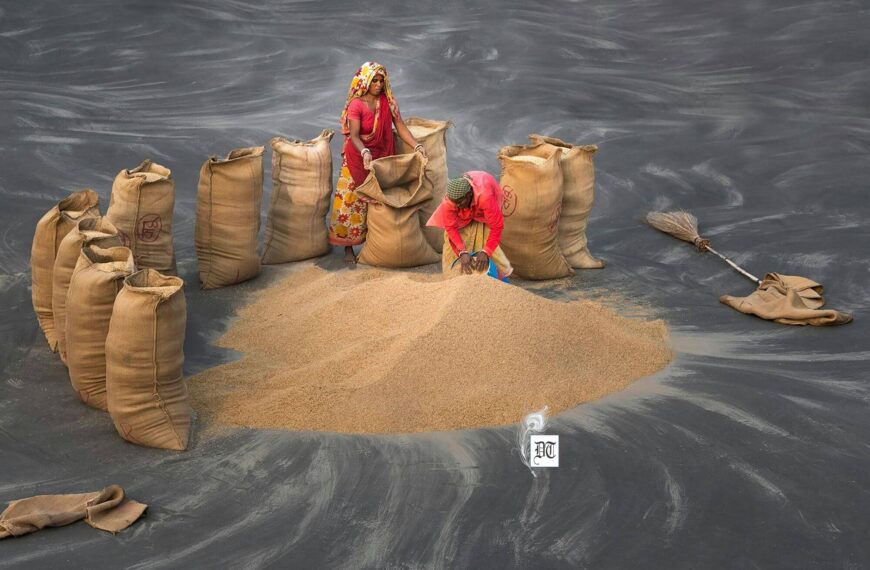Nirmal is in India for his youth exchange program between human rights organisation, Informal Sector service Centre (INSEC) Nepal and People’s Vigilance Committee on Human Rights (PVCHR) India. He compares the plight of women in India and Nepal and feels that an environment for their emancipation must be created, in action, not words.
Being close neighbours, India and Nepal share a unique relationship of friendship and cooperation characterised by open borders and deep-rooted people–to–people contact of kinship and culture. There is free movement of people across the borders. Nepal has an area of 147,181 Square Kilometres. It shares a border of about 1850Km in the east, south and west with five different Indian States – Sikkim, West Bengal, Bihar, Uttar Pradesh and Uttarakhand.
Nepal and India have many similarities in culture, language, dresses, as well as on some social issues.  Nowadays, I am in India for my Youth exchange program between human rights organisation, Informal Sector service Centre (INSEC) Nepal and People’s Vigilance Committee on Human Rights (PVCHR) India. I wish to talk about the plight of women in both of the countries.
Nowadays, I am in India for my Youth exchange program between human rights organisation, Informal Sector service Centre (INSEC) Nepal and People’s Vigilance Committee on Human Rights (PVCHR) India. I wish to talk about the plight of women in both of the countries.
The conditions of women in both countries are similae. Both countries are patriarchal systems. Women and girls are manifestly the subject of discrimination and exploitation of various forms. The gender based discrimination originates from home, and has been institutionalised as a culture. The law doesn’t oblige and discriminates them. Even parents fail to provide good care and education to the girls. Both countries have similar issues regarding violence against women.
Instances of violence are rampant in both India and Nepal.
Domestic Violence: Alcoholism related physical and mental tortures like beating wife and daughter-in-law, often brutally and murdering womenfolk is reported by the media often. Other than these, women face humiliation and verbal abuse and dowry related physical and mental torture. Basically, in India, there is dowry, which is a continuous process. Husband’s family demands gifts on several social occasion or festivals.
Sexual Exploitation: Sexual slavery, unwanted and forced pregnancy for producing a male child and child marriage, often with a much older person is quite common, Child Abuse: Paedophiles often exploit a child’s ignorance. They force young girls to have sex, blackmailing them and scaring them. It is unethical and unlawful. It’s a heinous crime that is often not reported fearing the bad name that it would bring on the girl and the family.
Access on Law: Vague process of law, fewer judges in the courts (less judges than the vacancies) and difficulties in registering FIRs in police stations. Jails are overcrowded in both the countries, with large numbers of under-trials, who do not get justice.
Culture bound Discriminations: Tattooing the body, keeping girls and women in dark rooms during menstruation, isolation and keeping them in unhygienic places post-delivery period, restrictions on widows to have free social life, practice of worshipping husband as a god are some of the deep rooted evils.
Both countries have rules and regulations for women empowerment and women’s rights, but there is lack of proper implementation. Though there are reserved seats for women, these are taken away by the rich and high class women. There is National Women Commission for the protection of rights of women but it hasn’t been effective. Women’s rights and issues are mentioned as a fundamental right in the Constitution but it’s more of a lip service with poor implementation. It is just limited in papers.
In my opinion both countries need to be sensitised to the fact that women are not meant to be treated as doormat or punching bags. The law enforcing machinery must be trained and made sensitive to the issues. Women must organise themselves in groups and raise collective voices against a system that turns a blind eye, if not actually condone violent acts against women.
United efforts might create a public opinion and outcry against humiliations against women perpetrated by men in society, government jobs or in uniform. These could work as a deterrent. Women must be aware of their rights and stand up to challenge the humiliations and violence.
They must unite and help each other in fighting against violence. Attitude should change right from their homes. They should be able to stand tall with dignity.
Pix sourced by Author




 By
By

